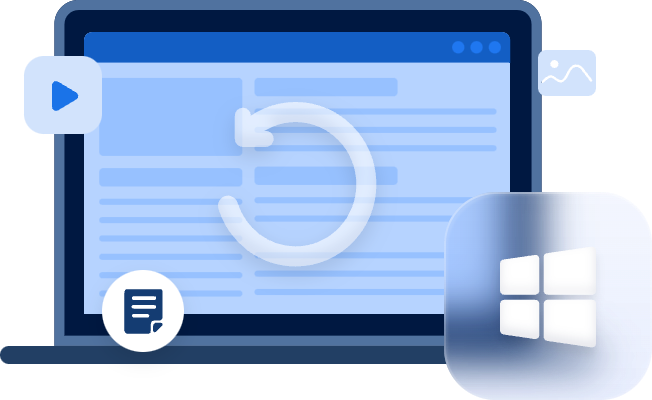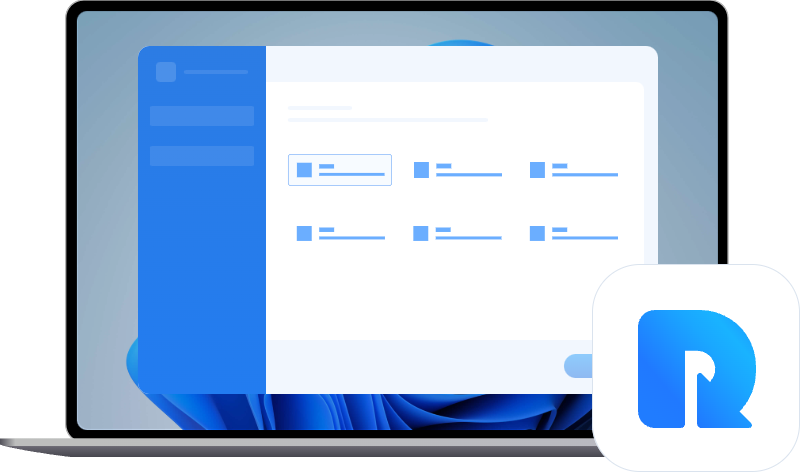Maximizing Computer Performance: The Integral Role of RAM
This article offers an in-depth exploration of the critical role RAM plays in determining a computer's performance. It provides a detailed understanding of how RAM impacts system operations and outlines methods to optimize RAM usage for improved efficiency.
In the digital era, understanding the dynamics of computer hardware is key to optimizing performance. One frequently asked question is, "How does RAM affect performance?" This guide delves into the intricate relationship between RAM and system efficiency, offering valuable insights and practical tips.
Additionally, we introduce MyRecover, a cutting-edge data recovery tool, and guide you through its detailed recovery steps. Let's embark on a journey to unlock the full potential of your computer!
How Does RAM Affect Performance?
Understanding RAM's Function in Computers
Random Access Memory (RAM) is your computer's active workspace, temporarily storing data for quick access. The amount and speed of RAM directly influence how efficiently your computer can process tasks and handle multiple operations simultaneously.
The Role of RAM in Multitasking: Imagine RAM as a desk; the larger it is, the more projects you can work on simultaneously without clutter. Similarly, more RAM allows your computer to manage several applications at once without slowing down.
RAM Speed and its Influence: RAM speed, measured in MHz, dictates how swiftly the CPU accesses data from the memory. Faster RAM translates to quicker data retrieval, enhancing overall system responsiveness.
Optimizing RAM for Enhanced Performance
Upgrading RAM: When and How
Upgrading RAM can be a cost-effective way to improve an older computer's performance. Before upgrading, check your system's maximum RAM capacity and the compatible type (DDR3, DDR4, etc.).
Step 1: Determine Compatibility: Consult your computer's manual or use online tools to identify the correct type and maximum capacity of RAM your system supports.
Step 2: Purchase Suitable RAM: Buy RAM that matches the specifications (type, speed, and size) of your existing modules for compatibility and optimal performance.
Step 3: Install the RAM: Power off your computer and unplug it. Open the case, locate the RAM slots, and carefully insert the new modules by aligning the notches and applying even pressure until they click into place.
Balancing Hardware Upgrades and Software Optimization
While hardware upgrades like adding RAM are essential, software optimization is equally important for maintaining peak performance.
Regular System Updates: Keep your operating system and drivers up to date to ensure compatibility and security, leading to smoother performance.
Managing Startup Programs: Reduce boot time and free up RAM by limiting programs that automatically run at startup.
Disk Cleanup and Defragmentation: Regularly clean up unnecessary files and defragment your hard drive to improve data access speed.
MyRecover: Your Ultimate Data Recovery Solution
Introducing MyRecover
MyRecover is an advanced data recovery tool designed to retrieve lost or corrupted files from various storage devices. Its user-friendly interface and powerful recovery capabilities make it a top choice for both casual and professional users.
-
Wide Range of File Types Supported: MyRecover can recover documents, photos, videos, emails, and more, covering almost all file types you might need to retrieve.
-
Compatibility with Multiple Storage Devices: Whether it's a hard drive, SSD, USB drive, or memory card, MyRecover is versatile in its recovery capabilities.
Step-by-Step Guide to Using MyRecover
Recovering your lost data with MyRecover is straightforward and user-friendly.
Step 1: Download and Install MyRecover: Visit the MyRecover website, download the installation package, and follow the prompts to install the software on your computer.
Step 2: Select the Target Drive for Recovery: Launch MyRecover, and choose the drive where your lost data was stored. This could be an internal hard drive, an external drive, or a removable storage device.
Step 3: Initiate the Scanning Process: Click on the 'Scan' button to start the scanning process. MyRecover will search for recoverable files, which might take some time depending on the size of the drive.
Step 4: Preview and Select Files for Recovery: Once the scan is complete, browse through the list of recoverable files. You can preview most file types before recovery to ensure they are what you need.
Step 5: Recover and Save Your Files: Select the files you wish to recover and choose a safe location on your computer or an external drive to save them. Avoid saving the recovered files back to the same drive to prevent overwriting.
Conclusion
Understanding and optimizing RAM is crucial in enhancing your computer's performance. Upgrading RAM can significantly boost efficiency, particularly in older systems. Coupled with software optimization and regular maintenance, you can achieve a balanced and high-performing setup. Additionally, with tools like MyRecover, you can easily recover lost data, adding an extra layer of security to your digital life. Embrace these strategies to unlock your computer's full potential and enjoy a seamless computing experience.
FAQs
Does increasing RAM always improve performance?
Generally, increasing RAM improves performance, especially if your current RAM is insufficient for your usage. However, there's a threshold beyond which additional RAM may not yield significant benefits.
How can I check my current RAM usage?
On Windows, use the Task Manager, and on Mac, use the Activity Monitor to view your current RAM usage and understand if an upgrade is necessary.
Can I mix different RAM brands and sizes?
While mixing different brands and sizes of RAM is technically possible, it's recommended to use identical modules for optimal compatibility and performance.
Does higher RAM speed make a big difference?
Higher RAM speed can contribute to better performance, but the noticeable difference depends on the specific tasks and applications you use.
Is data recovery with MyRecover guaranteed?
While MyRecover is highly effective, data recovery isn't always guaranteed, especially if the files have been overwritten or severely corrupted.


